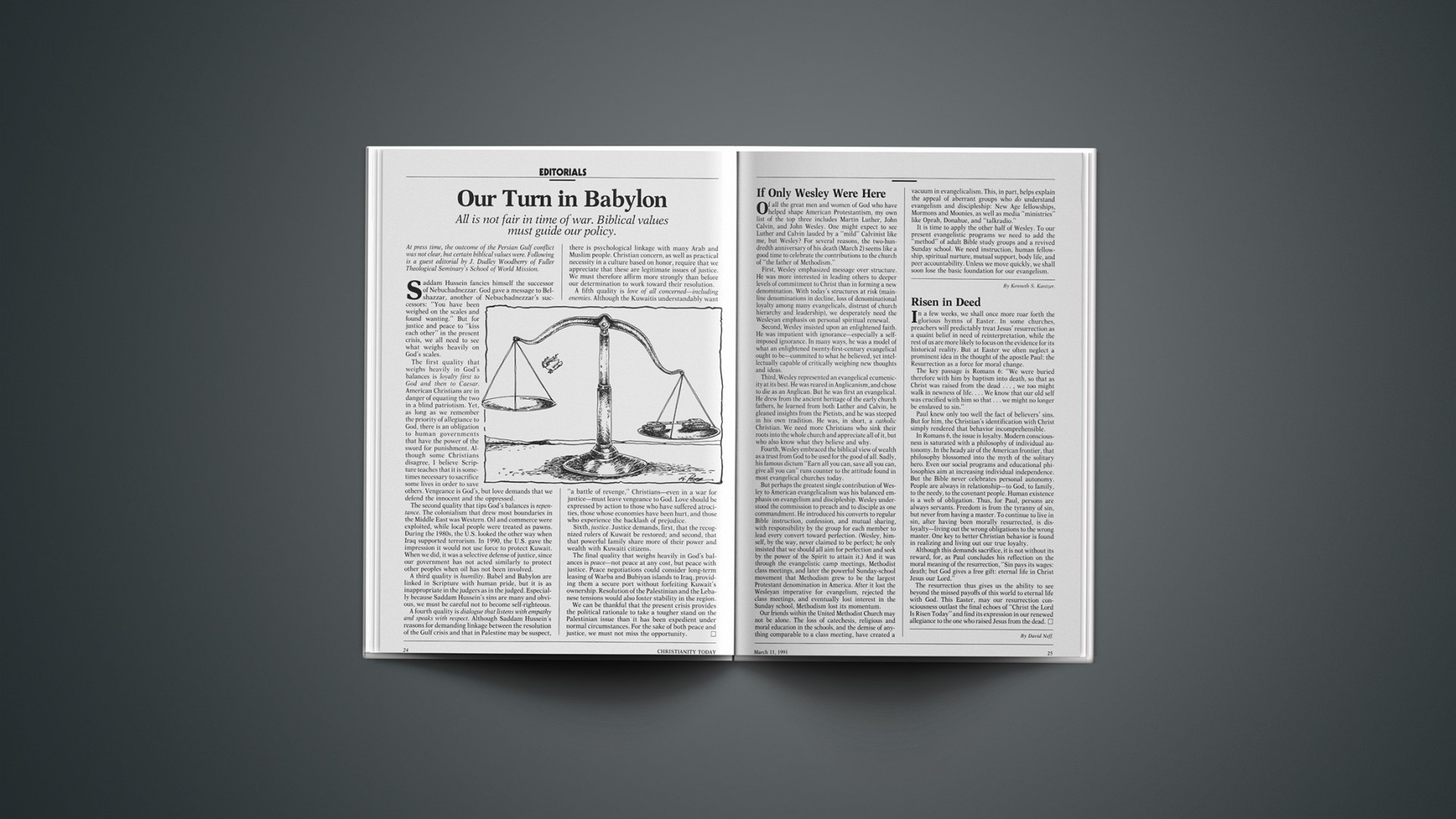Of all the great men and women of God who have helped shape American Protestantism, my own list of the top three includes Martin Luther, John Calvin, and John Wesley. One might expect to see Luther and Calvin lauded by a “mild” Calvinist like me, but Wesley? For several reasons, the two-hundredth anniversary of his death (March 2) seems like a good time to celebrate the contributions to the church of “the father of Methodism.”
First, Wesley emphasized message over structure. He was more interested in leading others to deeper levels of commitment to Christ than in forming a new denomination. With today’s structures at risk (mainline denominations in decline, loss of denominational loyalty among many evangelicals, distrust of church hierarchy and leadership), we desperately need the Wesleyan emphasis on personal spiritual renewal.
Second, Wesley insisted upon an enlightened faith. He was impatient with ignorance—especially a self-imposed ignorance. In many ways, he was a model of what an enlightened twenty-first-century evangelical ought to be—commited to what he believed, yet intellectually capable of critically weighing new thoughts and ideas.
Third, Wesley represented an evangelical ecumenicity at its best. He was reared in Anglicanism, and chose to die as an Anglican. But he was first an evangelical. He drew from the ancient heritage of the early church fathers, he learned from both Luther and Calvin, he gleaned insights from the Pietists, and he was steeped in his own tradition. He was, in short, a catholic Christian. We need more Christians who sink their roots into the whole church and appreciate all of it, but who also know what they believe and why.
Fourth, Wesley embraced the biblical view of wealth as a trust from God to be used for the good of all. Sadly, his famous dictum “Earn all you can, save all you can, give all you can” runs counter to the attitude found in most evangelical churches today.
But perhaps the greatest single contribution of Wesley to American evangelicalism was his balanced emphasis on evangelism and discipleship. Wesley understood the commission to preach and to disciple as one commandment. He introduced his converts to regular Bible instruction, confession, and mutual sharing, with responsibility by the group for each member to lead every convert toward perfection. (Wesley, himself, by the way, never claimed to be perfect; he only insisted that we should all aim for perfection and seek by the power of the Spirit to attain it.) And it was through the evangelistic camp meetings, Methodist class meetings, and later the powerful Sunday-school movement that Methodism grew to be the largest Protestant denomination in America. After it lost the Wesleyan imperative for evangelism, rejected the class meetings, and eventually lost interest in the Sunday school, Methodism lost its momentum.
Our friends within the United Methodist Church may not be alone. The loss of catechesis, religious and moral education in the schools, and the demise of anything comparable to a class meeting, have created a vacuum in evangelicalism. This, in part, helps explain the appeal of aberrant groups who do understand evangelism and discipleship: New Age fellowships, Mormons and Moonies, as well as media “ministries” like Oprah, Donahue, and “talkradio.”
It is time to apply the other half of Wesley. To our present evangelistic programs we need to add the “method” of adult Bible study groups and a revived Sunday school. We need instruction, human fellowship, spiritual nurture, mutual support, body life, and peer accountability. Unless we move quickly, we shall soon lose the basic foundation for our evangelism.









